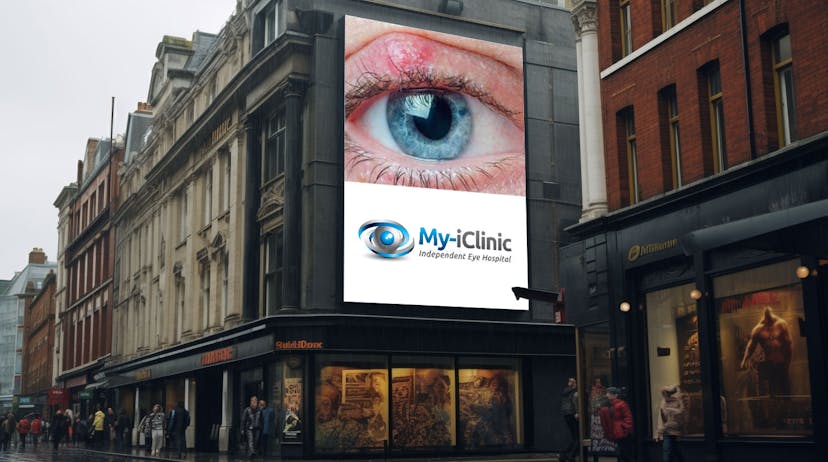
Battling The Cold Weather: Protect Your Eyes
In colder climates, safeguarding your eyes from the harsh effects of winter weather is of paramount importance. The cold air, coupled with indoor heating systems, can lead to dryness, irritation, and discomfort, leaving your eyes vulnerable to a range of potential issues. Furthermore, prolonged exposure to frigid winds and intense UV rays reflecting off snow and ice can lead to serious conditions like corneal frostbite and snow blindness. Therefore, wearing appropriate eye protection such as sunglasses that block harmful UV rays and using lubricating drops to maintain adequate moisture levels becomes essential. By taking proactive steps to shield your eyes from these environmental stresses, you not only ensure immediate comfort but also contribute to their long-term health and well-being.
Eye Conditions Overview
Cold weather can bring about a few potential problems for the eyes:
- Dryness and Irritation: Cold air tends to be dry, and indoor heating systems can exacerbate this. This dryness can lead to irritation, redness, and a feeling of grittiness in the eyes.
- Conjunctivitis (Pink Eye): This can be caused by viruses or bacteria, and in cold weather, people may be in closer proximity indoors, increasing the risk of transmission.
- Corneal Frostbite: This is a rare but serious condition. It can occur in extremely cold temperatures and strong winds. It's similar to frostbite on the skin, but it affects the cornea. Symptoms include pain, light sensitivity, and blurred vision.
- Photokeratitis (Snow Blindness): This is essentially a sunburn on the eye's surface. It can be caused by the sun's ultraviolet (UV) rays reflecting off snow or ice. Symptoms include pain, redness, and temporary vision loss.
- Decreased Tear Production: Cold weather can reduce tear production, leading to dry eyes. This can be exacerbated by wind and indoor heating systems.
- Contact Lens Discomfort: Contact lenses can be less comfortable in cold weather due to decreased moisture in the air.
- Allergies: Although more commonly associated with spring and summer, some allergens can still be present in the air during winter, leading to allergic reactions in the eyes.

The Winter Season
Yes, you may now be more cautious when driving or when choosing what to wear, but it’s even more important to protect your eyes as well from the potential hazards of winter conditions.
Here are some things you should start being aware of:
You may experience dryness in your eyes due to the low humidity caused by the cold outdoor air.
The strong winds can cause your eyes to lose their natural moisture leaving them feeling sore with potential feelings of pain and discomfort.
Vision changes can also occur. When you are in extremely low temperatures for long periods of time, the blood vessels in and around your eyes restrict and this constriction can cause vision changes such as blurriness and double vision.
If you notice vision changes while out in the cold, move to a warm area as soon as possible to correct your vision.
If your normal vision doesn’t return after a short period of time, you should seek medical attention as your eyes may not be able to correct themselves.
If you are planning on going away, say for example to take part in skiing, you may find that you will need to consider UV protection.
Like summer days, winter days can be so bright that they do start to damage your eye, especially if they are constantly exposed. Snow and ice are reflective, so the sun’s ultraviolet rays can reach your eyes from below as well as above.
Not wearing UV-blocking glasses or eyewear alike can prevent photokeratitis aka sunburn on your eye
What Should You Do?
To mitigate these issues, it's important to:
- Keep eye drops on standby for if/when your eyes become dried out or irritated by cold, drying winds. Using moisturising drops will help to keep them lubricated
- When the winter days are extra bright, wear sunglasses every day to prevent UV-ray exposure
- If you wear contact lenses, consider using rewetting drops or switching to glasses temporarily
- Use a humidifier at work and at home or try opening windows for a few minutes on cold days to help with your dry eyes
- If you are due a sight test, make sure you go, to ensure you have the best vision possible during the winter
- If your symptoms remain persistent be sure to book an appointment with an eye specialist who can advise you on what you can do.
If you experience severe or persistent eye issues in cold weather, it's important to seek advice from an eye care professional. They can provide specific recommendations and treatment options based on your individual situation.
Find out more by Speaking to our team









